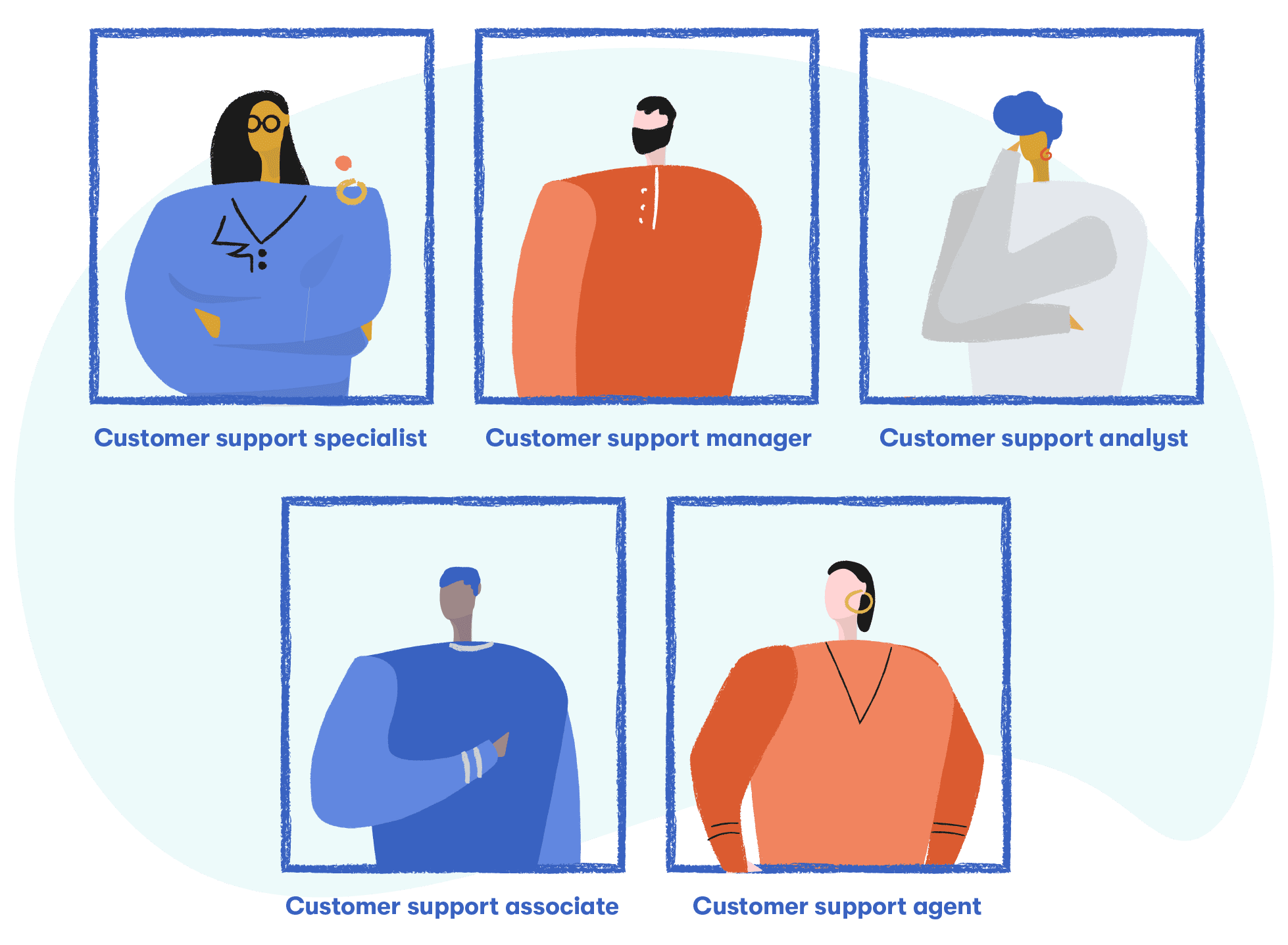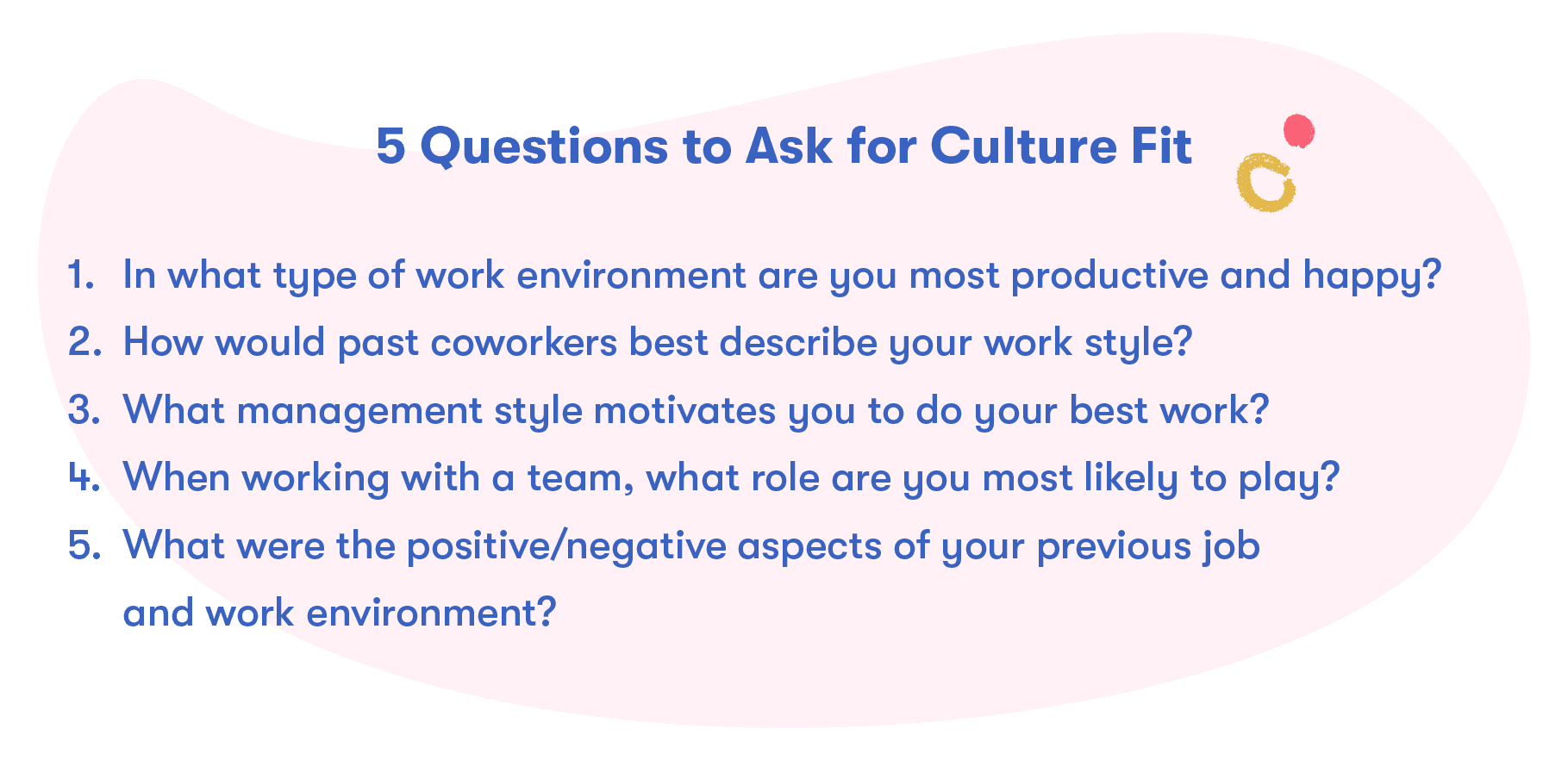Customer Support Specialists and Beyond: How to Build (or Join!) the Customer Support Team You Need
Customer support specialists are the voice of your company when customers have problems. Here’s how to build the customer support team you need.
What does it take to build the right customer support team for your business?
What job titles do you need? How much should you pay team members? And how do you get the best people on board?
This article includes research-backed answers to each of these questions.
For founders, small business owners, and customer support managers, I’ll cover:
- Most common customer support roles
- Job descriptions and salary ranges for each

Job titles and salaries for customer support positions
While the naming of different roles varies, data from LinkedIn, Google, and Glassdoor group around five titles. In order of frequency:
- Customer support specialist
- Customer support manager
- Customer support analyst
- Customer support associate
- Customer support agent
Here’s a look at the positions, responsibilities, and salary ranges for each.
(For you job hunters, I’ve included keywords for your resume and cover letter with each one. That will help you if a company is using HR screening software in its evaluation process)
1. Customer support specialist
Customer support specialists are experts at their product, and their primary duty is to resolve customer issues quickly and efficiently.
They spend their days in email, live chat, or on the phone, helping customers resolve any issue they may be having.
This position usually requires at least a year or two of experience in the field.
Customer support specialist salary range
- Salary range: $29k–$54k
- Median salary: $36,814
Keywords to include in job descriptions
- Customer support
- Communication
- Detail
- Email support
- Live chat
- Manage
- Organized
- Team
- Telephone support

Grab this image—along with the other definitions, salary ranges, and keywords—as a single cheatsheet to keep on hand as you grow your team (Source: Glassdoor)
2. Customer support manager
At the head of customer support teams are customer support managers.
Support managers often report directly to a founder or COO. Usually, they are responsible for the overall results of the support team plus hiring, training, and retention of support employees.
You don’t need a dedicated customer support specialist degree to become a manger. But most have held customer support specialist jobs in the past. As managers, they are often called in to help resolve difficult problems or customers who are upset with their situation.
At smaller startups, the manager often spends time “manning a shift,” answering support requests directly—as well as managing the team.
Customer support manager salary range
- Salary range: $55–$120k
- Median salary: 83,983
Keywords to include in job descriptions
- Budgeting
- Change
- Customer support
- Dispute escalation
- Experience
- Growth
- Hiring
- Management
- Metrics
- Profit
- Revenue
- Stakeholders

Grab this image—along with the other definitions, salary ranges, and keywords—as a single cheatsheet to keep on hand as you grow your team (Source: Glassdoor)
3. Customer support analyst
A customer support analyst is most common in data-driven industries such as finance and banking. The role blends the duties of a data analyst with customer support specialist skills.
Analysts are still the primary contact for customers, but they must also be able to collect and analyze data to produce actionable intelligence for the companies they work for.
For those of you looking for a job, expect unique customer support analyst interview questions during the interview process since it’s more data-centric than the other customer support positions on this list.
Customer support analyst salary range
- Salary range: $38–$68k
- Median salary: $49,809
Keywords to include in job descriptions
- Analysis
- Customer support
- Communication
- Data
- Detail
- Email support
- Live chat
- Manage
- Organized
- Reporting
- Team
- Telephone support

Grab this image—along with the other definitions, salary ranges, and keywords—as a single cheatsheet to keep on hand as you grow your team (Source: Glassdoor)
4. Customer support associate
A customer support associate is either an entry-level position or one that requires less than two years of experience in support. Like a customer support specialist, associates work as part of a team, providing support through a variety of channels (email, telephone, live chat, etc.).
Despite their junior position, customer support associates are often the first person a customer speaks with when contacting the company for support.
Customer support associate salary range
- Salary range: $28k–$48k
- Median salary: $35,938
Keywords to include in job descriptions
- Customer support
- Communication
- Detail
- Email support
- Live chat
- Manage
- Organized
- Team
- Telephone support

Grab this image—along with the other definitions, salary ranges, and keywords—as a single cheatsheet to keep on hand as you grow your team (Source: Glassdoor)
5. Customer support agent
The role of customer support agent is very similar to a customer support associate, and the titles are often used interchangeably. The position requires less than two years of experience in support. Similar to associates, agents are often the first employees to respond when a customer submits a support request.
Customer support agent salary range
- Salary range: $28k–$48k
- Median salary: $35,938
Keywords to include in job descriptions
- Customer support
- Communication
- Detail
- Email support
- Live chat
- Manage
- Organized
- Team
- Telephone support

Grab this image—along with the other definitions, salary ranges, and keywords—as a single cheatsheet to keep on hand as you grow your team (Source: Glassdoor)
Want to save the five roles, salary ranges, and keywords for later (or share them with your team)?
Download them as single customer support team cheat sheet
Hiring for support positions
Hiring is hard for any position, and support is no exception.
There are the usual hiring strategies you see recommended everywhere (look at results over qualifications, give people a test project, etc.).
But here are three things to keep in mind when hiring specifically for support roles.
1. Ask interview questions for culture fit
The standard advice of “Hire for culture fit” is extra important for support team members.
Support agents are the voice of your company. The tone and personality of their interactions with customers will be crucial for customer retention and happiness, which is why it’s critical to ensure they mesh well with your existing culture and values.
Give a special focus to culture fit during your interviewing process. How? Through unique customer support specialist interview questions.
Josh Tolan, CEO of video solution Spark Hire, uses these five questions when evaluating a candidate for culture fit:
- In what type of work environment are you most productive and happy?
- How would past coworkers best describe your work style?
- What management style motivates you to do your best work?
- When working with a team, what role are you most likely to play?
- What were the positive/negative aspects of your previous job and work environment?

Modify those questions to fit your company and your situation. But don’t hire someone if they’re not a good fit for your organization, even if their resume is stellar otherwise.
2. Prioritize writing skill
Writing is critical in customer support since the majority of support is now done by email or chat.
Basecamp founders, Jason Fried and David Heinemeier, drive this point home in their book on remote work cultures: Remote: Office Not Required.
If you are trying to decide among a few people to fill a position, hire the best writer. It doesn’t matter if that person is a marketer, salesperson, designer, programmer, or whatever; their writing skills will pay off.”- Jason Fried and David Heinemeier Hansson, Co-founders of Basecamp
If a candidate’s communication with you isn’t clear, effective, and easy to understand, it won’t be for customers either.
3. Don’t hire people ‘like you but younger’
Managers have a tendency to hire people who look a lot like them, but a few years younger.
Startup founders and small business owners are especially prone to making this mistake because they often think of hiring as a way to clone themselves.
However, this approach will prevent your team from being as creative and effective as it could be.
One of my favorite stories about hiring for creativity is from a Harvard Business Review interview with Patty McCord, Netflix’s former Chief Talent Officer.
When we started opening up the service to people to build applications, to build their own apps to use Netflix, there was a guy in Arizona who wrote this really cool app that we all really loved … So, I’m like, ‘Well let’s go find him.’”
The developer they were seeking wasn’t even employed as a developer at the time. He was working in a bank.
But they found him and flew him to Netflix’s Silicon Valley headquarters.
So, he’s a really fresh perspective on what to do that’s not just technical. He very much is customer centric. So, we interview him all day long, and at the end of the day, he says to me, Are you going to hire me to do what I love to do? And I said, Yes, we are.- Patty McCord, Former Chief Talent Officer at Netflix
Look for people who are customer centric
If you only hire people who look and act like you, you’ll miss opportunities like this one.
In addition, hiring only people like you means everyone you hire will have the same weaknesses and shortcomings as you as well.
Instead, look for people who are very customer centric, even if they come from a different background than you do. Like McChord’s programmer from Netflix, they’ll be the ones who bring fresh, creative approaches customer problems, especially those sticky ones you don’t see coming.
Job boards to find qualified candidates
When you’ve written your job description, here are two job boards to try with specific sections for customer support.
WeWorkRemotely: We use WeWorkRemotely a lot at Groove and really like the results. They have a dedicated section for support. The cost is $299 for a 30-day listing.
Support Driven: Support Driven is a job board specifically for a community of customer support professionals. Most applicants here will already have experience working with customers online. A standard job post is $150 for a 30-day listing.
Customer Service Specialists: The unsung heroes
Customer support teams are the unsung heroes of many organizations.
You are the faces and names of your company—often the only ones some customers will ever interact with.
It doesn’t matter if your title is customer support specialist, customer support manager, or founder (with a customer support hat you wear from time to time).
Whatever your role, your “customer service representative” skills create the experiences your customers remember.
Because when products break, when sales contracts go wrong, when features don’t release on the dates your company promised, it’s customer support that takes the brunt of the feedback.
Support is one-to-many
From the customer’s point of view, the experience is one-to-one.
So as a support leader, you know what happens behind the scenes is one-to-many. That’s because there’s an entire team of people working together to create successful outcomes for your customers.
It’s the team that make the difference—working together as a whole.
Building a world-class support team means two things:
- Finding the right people
- Getting them in the right roles on your team.
I hope the information here will help you will both of these tasks.